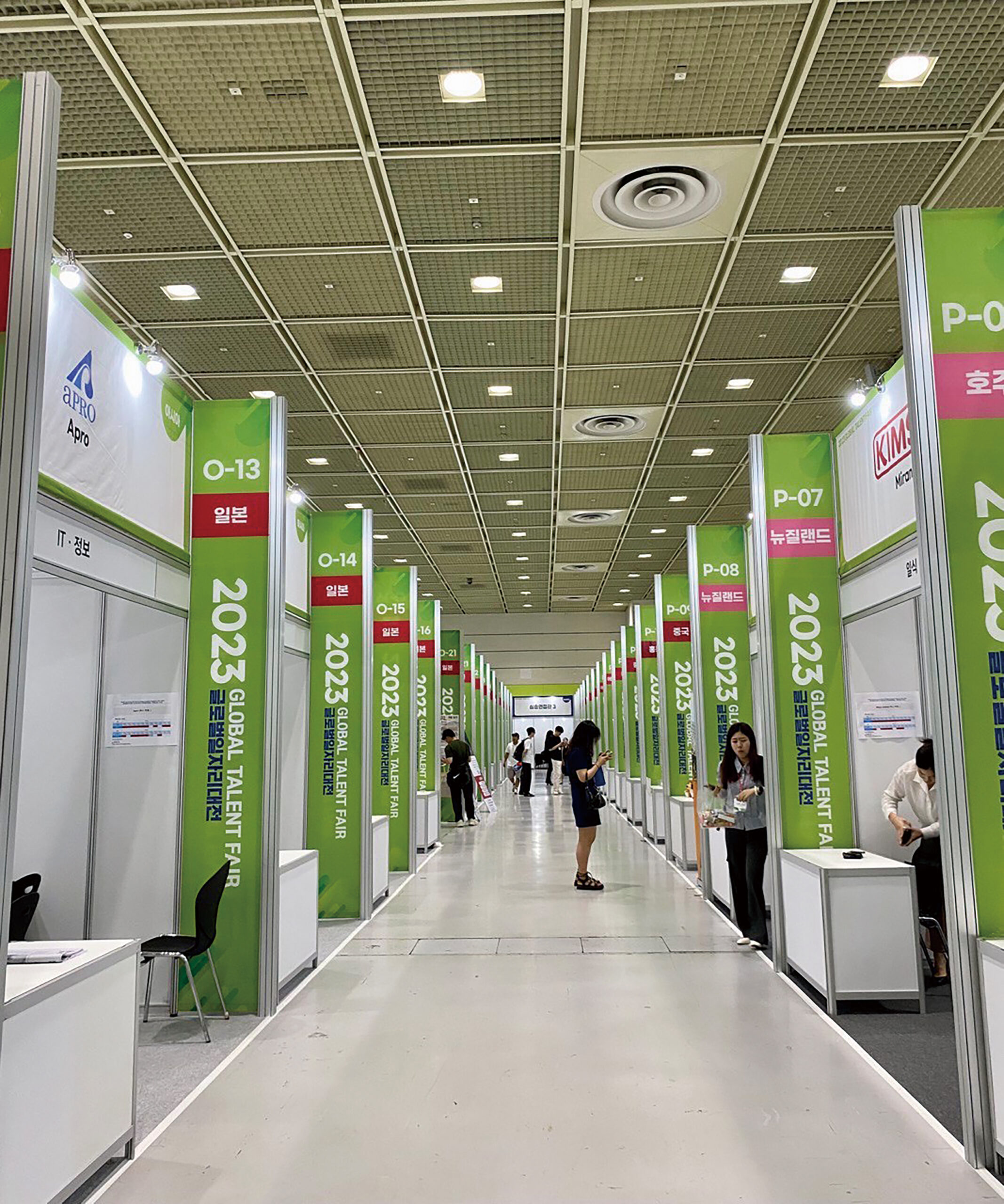Bridging the Gap
Minimum Wage in a Contemporary, Aging Society
By Yousra Feriel Drioua
It hits me, as I just turned 25, that I’m soon not going to be as “employable” unless I manage to acquire skills and, most importantly, professional experiences under my belt. Luckily for me and my peers, no matter what job market we are scouring, we can acquire the desired modern skills with ease, which in labor terms translates to an increase in our employability and payment range, and will set us apart from our competitors. But what about those who cannot keep up with the ever-changing contemporary labor landscape?
Generally, laborers are impacted by government regulations and the slightest changes to the economy. However, belonging to certain groups, such as those with visible or invisible disabilities, seniors, and underaged youth, makes one even more vulnerable to policies and laws regarding labor and wages. With the recent changes in the global economic state, the saying “The rich get richer, and the poor get poorer” has become more relevant than ever. Although it mostly arises when discussing financial freedom, it can be linked to the topic we will delve into in this article.
Though not even half-way through 2024, the Korean Minister of Employment and Labor requested the Minimum Wage Commission to review wages for 2025, which is expected to spark a long debate. The main focus over the last few years has always been on whether the said commission could reach the long-awaited 10,000-won threshold per hour. However, this year, another dimensional issue has been added to the discussion that has yet to be resolved. The labor market is now not only meant to challenge potentially unsatisfactory minimum wages for 2025 but also the differentiated application of wages including various industries.
Last March, the Bank of Korea released a report showing that Koreans spend four times as much on caregiving services for children and the elderly compared to neighboring countries. The report highlighted that the cost is set to increase accordingly with the aging population. To counter this issue, the Bank of Korea proposed a short-term solution by introducing the implementation of a lower-than-minimum wage for foreign nationals working in the domestic labor field. The mayor of Seoul, Oh Se-hoon, welcomed this statement, adding that the foreign caregiver program is set to start this year under a joint partnership between the Seoul Metropolitan Government and the national government. Although the program could potentially relieve certain financial burdens, it was not received warmly by the Federation of Korean Trade Unions. The Federation argued that Korean caregivers are already working in poor environments and ignoring these conditions by implementing such temporary solutions will cause additional and unnecessary conflicts.
Other labor groups have shown similar concerns over the minimum wage issues as well. Thirty-eight members from the Seoul Metropolitan Council proposed wages lower than the official minimum wage for seniors aged 65 and older. This suggestion was made with the aim of revitalizing the job market for senior citizens, again in the context of an aging society, as most employers prefer younger individuals, albeit also under the minimum wage. This proposal was also met with disdain from experts who warned against the serious consequences it would bring to the labor market. The experts argued that the minimum wage is meant to protect workers despite their age or nationalities, that such a proposal goes against its original purpose, and that it could lead to conflicts with existing anti-discrimination laws. Other experts additionally argued that creating lower wages to revitalize certain job sectors is not sustainable and that instead of hiring seniors at lower costs, the focus should be on enhancing their competitiveness in the job market through education and training to lower the disparity in skills.
Unfortunately, in theory or real life, the butterfly effect is real. If the government the fails to prevent age- and nationality-based labor discrimination and instead enforces such regulations, it will only be a matter of time until all labor groups are affected. There is no escape from capitalism and one must make a living to survive. Hence, efforts made by people from different sectors are necessary to ensure equal labor opportunities and competency training.
The Author
Yousra Feriel Drioua is an Algerian GKS scholar currently residing in South Korea and majoring in media communication and journalism. She loves writing, coffee, and intriguing conversations. She wishes to become someone useful to society and others. Instagram: @myyigli





